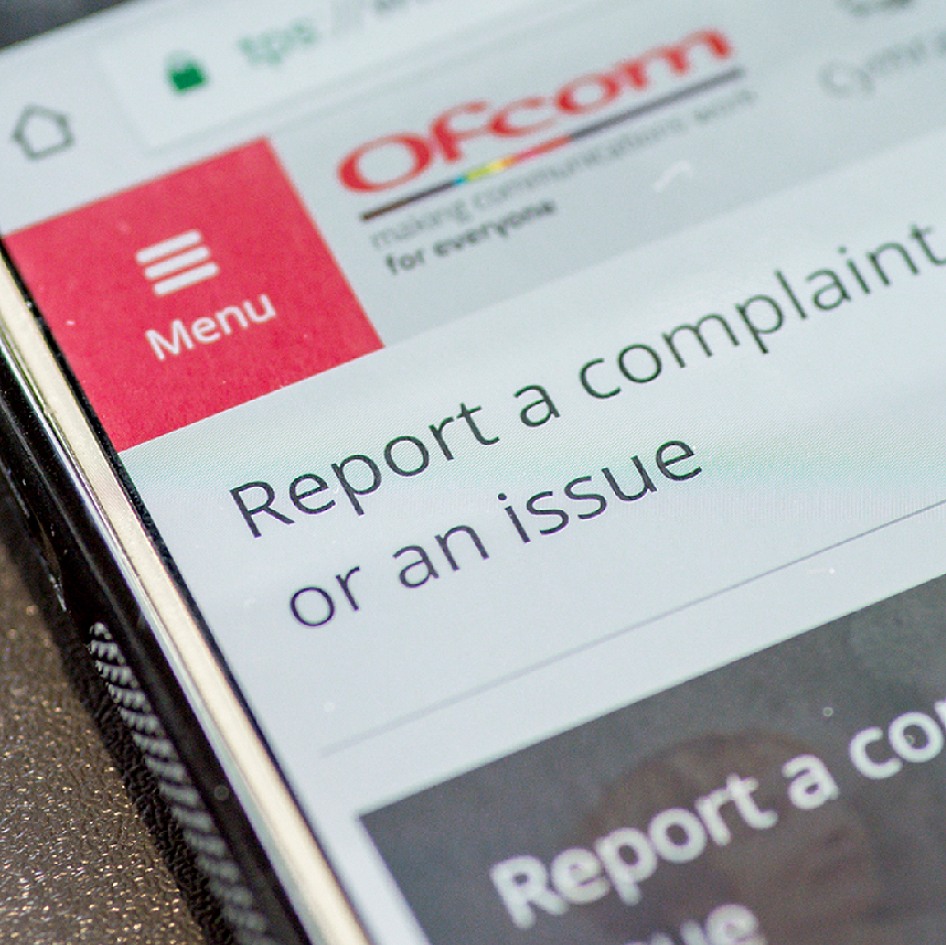Emergency UK Summer Budget 2015 – Anything for Broadband or Mobile?
The new Conservative Government has today released its Summer Budget 2015, but those hoping for some extra details on the broadband related announcements from the prior March 2015 budget will be left disappointed. But there is a £10m boost for 100Mbps+ connectivity in the South West.
It’s not uncommon for “emergency” budgets to follow after a general election in which the controlling party of Government changes hands like it did in May 2015. On this occasion many of the same players are still present, although the coalition ended and thus there were no Liberal Democrats to weight against today’s fully Conservative policy.
As expected today’s budget has predominantly concerned the need to set out another round of public spending cuts in order to tackle the country’s perilously high level of national debt (around £1.56 trillion in Q1 2015 or 81.58% of total GDP), which makes it difficult to invest in new things when the interest payments alone are worth £43bn per year.
Some might anticipate that the new political dynamic could also have an impact on broadband and mobile policy, although it’s worth remembering that related investment was one of the fields where both of the previous coalition partners appeared to fully agree and thus we weren’t expecting much of a change today.
The Original Budget 2015 Promises
At present the existing Broadband Delivery UK programme and related projects aim to make fixed line “super-fast broadband” (24Mbps+) services available to 95% of premises by 2017 (rises to 99% by 2018 when you include mobile and other fixed wireless solutions) and this involves a total public investment of around £1.7bn.
So far progress on the above target has remained more or less on schedule in terms of national UK coverage (here), at least it has for the first (BDUK Phase 1) goal of achieving 90% superfast broadband coverage by 2016 (it should hit this by the end of 2015 or early 2016). But BT has previously hinted that the 95% coverage target for BDUK Phase 2 may yet slip into 2018.
In relation to the above there’s also a secondary goal of providing “basic broadband” (download speeds of at least 2Mbps) for all by 2016, although this is a non-binding Universal Service Commitment (USC). Otherwise BT has scooped up the bulk of BDUK contracts, although altnets like Gigaclear and Airband have recently secured a small slice of the pie.
On top of that there are various projects to support urban business connectivity in 50 cities, improve public wifi coverage in related areas and not to mention the Government’s strategy for tackling mobile notspots and partial-notspots (here); albeit not without some problems (here). But the previous March 2015 Budget also made a few other announcements.
March 2015 Budget – Broadband and Mobile Highlights
* A new ambition for “ultrafast broadband” of at least 100Mbps (Megabits per second) to become available to “nearly all” UK premises in the country. So far there’s no public funding for this, outside of the £40bn UK Guarantees Scheme (helps big infrastructure projects to raise debt finance via a sovereign-backed guarantee). Virgin Media are using this to push their 152Mbps capable cable network out to around 60% of the UK (17 million premises) by 2020 (here) and BT’s plans for a 2016/17 G.fast roll-out (i.e. up to 500Mbps for “most homes“) over the next decade may also benefit.
* A plan to review the potential for adjusting the legally-binding Universal Service Obligation (USO) to include a 5Mbps broadband speed requirement (Ofcom’s current definition is merely for “functional” Internet access and that sadly allows slow dial-up speeds to qualify), but this is not yet a firm commitment to update the USO.
* Subsidising the costs of installing affordable superfast capable Satellite services to rural areas (the official document suggests this will focus on only “around a further 1% of premises” beyond the current 95% target), which is intended to launch “later this year“. Satellite ticks the speed and coverage box, but it’s also an approach that has many flaws (network congestion, expensive usage allowances, high latency etc.) and may thus struggle to please rural villages.
* An investment of up to £600m to deliver better mobile networks (i.e. a change of use for the 700MHz spectrum so it can support 4G), which will further enhance the UK’s Mobile Broadband connectivity. This will support the infrastructure costs of clearing the spectrum frequency, including support to consumers where appropriate, and retuning broadcast transmitters to enable broadcasters to move into a lower frequency (600MHz). The government will also centralise the operational management of public sector spectrum. A late Ofcom auction for spectrum in the 2.3GHz and 3.4GHz bands is also planned.
* The Government will implement the European Broadband Directive to reduce the cost of rolling out new infrastructure, which was expected, and a related consultation on its implementation should be brought forward this year.
* The Government also said that they would carry out a further assessment in 2018 of general broadband coverage levels, use and demand. This is being done to “ensure that everyone has access to the services they need,” but it’s still a long way off and Ofcom would probably do this anyway.
The key question in all this is how much funding will be assigned to the proposed Phase 3 of the Broadband Delivery UK programme, which will be tasked with filling the final 5% coverage gap for superfast broadband services and that also happens to be one of the most expensive challenges (related areas are predominantly rural with sparse populations).
In order to solve this the Government last year launched a £10m Innovation Fund, which is piloting 7 projects that will “test innovative solutions to deliver superfast broadband services to the most difficult to reach areas“. A variety of Satellite, fixed wireless networks and fibre optic based broadband services are involved in the trials, but we’re not anticipating the final outcome to be revealed until late 2015 or early 2016.
The Summer Budget 2015
As expected today’s budget was mostly all about the Government’s need to set out a new raft of spending cuts and some big incentives (e.g. national living wage). The Chancellor of the Exchequer, George Osborne MP, opened by pledging to be “bold” in delivering new infrastructure and later pointed towards his desire for the UK to become the “most prosperous major economy in the world by the 2030s“.
But despite all that the only new piece of broadband related information was a small commitment of £10 million to help “support connectivity” in the South West, which gives a particular focus towards services that deliver “ultrafast” speeds of 100Mbps+.
South West Broadband Boost
The government will allocate up to £10 million to the broadband programme in the South West, commencing April 2016. This fund will be available for local projects to bid into, with priority given to those delivering ultrafast speeds of 100mbps and above.
Broadband Delivery UK will start working with local projects immediately to determine the most effective way of delivering this support.
Sadly there were no further details on this, which is disappointing since the “South West” is quite a big area. We are requesting some more info.
UPDATE 4:48pm
A comment has come in from ITS Technology.
David Cullen, Director of Strategy for ITS Technology Group, said:
“The Chancellor’s pre-election budget demonstrated the government’s commitment to long term investment into digital infrastructure, which is critical to this country becoming a leader on the world stage (though it still has a mountain to climb to reach this goal). But having listened to the Chancellor’s summer budget, I was somewhat disappointed that there was little reference to digital and broadband (only the South West got a mention).
Broadband infrastructure will continue to play a vital role in ensuring the UK can build a stronger economy, by allowing businesses to take advantage of applications that will make them better, more productive and save them money in the long term. Enabling the digital economy in this way will allow a faster, more tangible and sustainable contribution to growing the UK’s economy than other major infrastructure projects the government is involved in; and the benefits will be felt for generations to come.”
In addition, BDUK informs us that there is currently no further information to offer on the new £10m commitment mentioned further above. Apparently the Government will now begin working with local projects immediately to determine the most effective way of delivering the new support.
UPDATE 9th July 2015
Another comment, this time coming from Shropshire.
Patrick Cosgrove, Leader of the Shropshire and Marches Campaign, said:
“This [£10m] is almost certainly a last-minute rescue plan to bail out last week’s disaster that is the failure of the broadband roll-out programme in Devon and Somerset. We have no grumble with that; the homes and business in those two counties need high speed broadband just like everywhere else, and a national infrastructure programme that is predicated on successive tranches of local authority matching was always high risk.
Where this campaign does have a grouse is with the double standards being shown by government. Shropshire also has a problem with matched funding to the tune of £6m and at least 15,500 homes and businesses (probably a great many more) here appear unlikely to be connected to fibre-broadband. Why wasn’t there £6m in the budget for Shropshire?”
Mark is a professional technology writer, IT consultant and computer engineer from Dorset (England), he also founded ISPreview in 1999 and enjoys analysing the latest telecoms and broadband developments. Find me on X (Twitter), Mastodon, Facebook and Linkedin.
« Wales UK to Name and Shame Fibre Broadband Obstructing Land Owners
Mixed Results for UK in ZyXEL European Home Broadband Survey »
Latest UK ISP News
- FTTP (5513)
- BT (3514)
- Politics (2535)
- Openreach (2297)
- Business (2261)
- Building Digital UK (2243)
- FTTC (2043)
- Mobile Broadband (1972)
- Statistics (1788)
- 4G (1663)
- Virgin Media (1619)
- Ofcom Regulation (1460)
- Fibre Optic (1394)
- Wireless Internet (1389)
- FTTH (1381)
























































Comments are closed